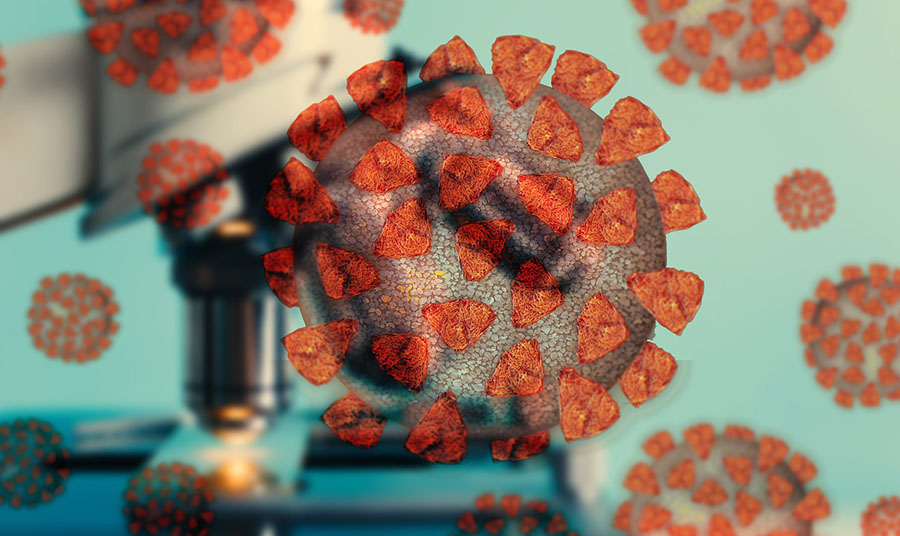The Life Sciences Report: Can-Fite BioPharma Ltd. (CANF:NYSE.MKT) has three candidates, two in the clinic and one preclinical, addressing cancer, inflammatory diseases and erectile dysfunction. Please describe your platform technology and how it can address these different issues.
Pnina Fishman: All our drugs target the A3 adenosine receptor, which is upregulated in pathological cells but not in normal body cells. Upon binding to inflammatory or cancer cells, our drugs induce cell death via a definitive molecular mechanism of action that has been extensively published by Can-Fite. Normal cells are refractory to the effect of the drug due to very low or no expression of the target. In glaucoma, one of our targeted therapy areas, our drug acts both as an anti-inflammatory and a neuro-protective agent by inhibiting the apoptosis of retinal ganglion cells.
If your readers would like to learn more about the mechanism of action of Can-Fite's therapies, an extensive list of published articles on our technology platform and drugs in scientific journals can be found here.
TLSR: Why did you select these therapy areas?
PF: We chose these therapy areas based on the mechanism of action, demonstrating the capability of the drugs to act as anti-inflammatory, anti-cancer and neuro-protective agents. Preclinical experimental animal data supported the selected clinical indications and served as an early proof of concept, which has been further proven already in Phase 2 clinical studies.
TLSR: Would you describe Can-Fite's progress with its candidate, CF101, which has been in Phase 2 studies for psoriasis and rheumatoid arthritis? What are its advantages in the marketplace?
PF: We plan to announce our Phase 2/3 results for CF101 in psoriasis this month. We have already completed a Phase 2 rheumatoid arthritis trial and announced positive results in December 2013.
The current treatment today for rheumatoid arthritis and psoriasis is focused on biological drugs, which are mostly monoclonal antibodies acting against inflammatory cytokines. The drugs are efficacious, but many patients stop responding after a couple of months of treatment and also can develop adverse events, including severe infections and lymphoma.
CF101 is a small molecule drug that has an excellent safety profile, proven in more than 1,500 patients. In contrast to biological drugs delivered via injection, CF101 is orally bioavailable and given twice daily in the form of a tablet. This is very convenient for the patient. Last but not least, the drug improves disease manifestations in a very linear mode.
TLSR: What is the market for CF101 in both indications?
PF: By 2017, the global market for rheumatoid arthritis drugs is estimated to reach $38.5 billion ($38.5B), according to Visiongain. According to Global Data, the psoriasis treatment market is forecasted to grow to $6.7B by 2018. We envision that a major market share will be taken by Can-Fite's small molecule due to its excellent safety and good efficacy.
TLSR: What is the timeline for further trials or filings with the U.S. Food and Drug Administration (FDA) in these two applications?
PF: In psoriasis, we need to conduct an additional Phase 3 study. We estimate a filing in 2018. As for a timeline for Phase 3 in rheumatoid arthritis, we plan to announce that shortly after concluding the readout of the psoriasis data.
TLSR: Can-Fite's CF102 targets liver cancer, and met its clinical endpoints in a Phase 1/2 trial. How is this therapy differentiated?
PF: This therapy induces death of liver cancer cells, which are resistant to every type of chemotherapy. Our CF102 drug does not induce liver toxicity, and this is why we can use it in patients with advanced liver disease. Overall survival in this patient population was very impressive in the Phase 1/2 study, and led us to design the current global Phase 2 study in patients with advanced liver disease.
The first patient in the Phase 2 was dosed in December 2014, and we hope to finalize patient enrollment by the end of 2015.
TLSR: In January, Can-Fite announced positive preclinical results for an erectile dysfunction drug in development. How is CF602 differentiated from other erectile dysfunction treatments?
PF: CF602 is an allosteric modulator, and as such we believe it will have a very good safety profile. Preclinical data show excellent safety via a definitive mechanistic pathway, which will enable patients suffering from sexual dysfunction to enjoy this drug. We think of CF602 as a drug that can treat a chronic condition and offer huge relief for patients.
TLSR: Do you have a timeline to start Phase 1 trials?
PF: We envision that preclinical studies will take at least a couple of months. We believe we will complete our working plan for a Phase 1 trial by the end of 2015.
TLSR: How big is this market, and how much of it do you think Can-Fite can secure?
PF: The market is an estimated $3B, according to Global Data. I expect Can-Fite can take a considerable share based on the anticipated safety and efficacy profiles in this indication.
TLSR: You have 120 patents in your portfolio, which indicates Can-Fite's interest in protecting intellectual property (IP). How does that play into the value of your company? Does it increase your attractiveness as a partner and/or a takeover target?
PF: Our good IP protection makes our products attractive drug candidates for potential partners. We believe a strong IP position is an important factor in valuation.
In addition, we already have entered into agreements with other companies and research institutions. We have existing out-licensing deals with companies in Japan and South Korea for development of CF101 in those countries. Additionally, we have ongoing collaborations with the National Institutes for Health in the U.S., and with the Leiden University in the Netherlands.
TLSR: Thanks for your insights.
Pnina Fishman is the scientific founder of Can-Fite BioPharma Ltd. and was previously a professor of life sciences and headed the Laboratory of Clinical and Tumor Immunology at the Felsenstein Medical Research Institute, Rabin Medical Center. Prof. Fishman is an accomplished scientist and has authored or coauthored more than 150 publications and presented the findings of her research at many major scientific meetings. Her scientific work was the foundation on which Can-Fite was built. This scientific work has gained recognition as one of the leading approaches for new-generation therapies for cancer and other diseases. Her past managerial experience included seven years as CEO of Mor Research Application (MRA), a company that was in charge of the commercialization of intellectual property from all hospitals and research centers of Clalit Health Services, the largest healthcare provider in Israel, and was also the first clinical CRO in Israel. She was also involved in the establishment and served on the board of directors of several life sciences technology start-ups.
Read what other experts are saying about:
Want to read more Life Sciences Report interviews like this? Sign up for our free e-newsletter, and you'll learn when new articles have been published. To see a list of recent interviews with industry analysts and commentators, visit our Streetwise Interviews page.
DISCLOSURE:
1) Tracy Salcedo-Chourré conducted this interview for Streetwise Reports LLC, publisher of The Gold Report, The Energy Report, The Life Sciences Report and The Mining Report, and provides services to Streetwise Reports as an employee. She owns, or her family owns, shares of the company mentioned in this interview: None.
2) Can-Fite paid Streetwise Reports to conduct, produce and distribute the interview.
3) Pnina Fishman had final approval of the content and is wholly responsible for the validity of the statements. Opinions expressed are the opinions of Pnina Fishman and not of Streetwise Reports or its officers.
4) The interview does not constitute investment advice. Each reader is encouraged to consult with his or her individual financial professional and any action a reader takes as a result of information presented here is his or her own responsibility. By opening this page, each reader accepts and agrees to Streetwise Reports' terms of use and full legal disclaimer.
5) From time to time, Streetwise Reports LLC and its directors, officers, employees or members of their families, as well as persons interviewed for articles and interviews on the site, may have a long or short position in securities mentioned. Directors, officers, employees or members of their families are prohibited from making purchases and/or sales of those securities in the open market or otherwise during the up-to-four-week interval from the time of the interview until after it publishes.




























































